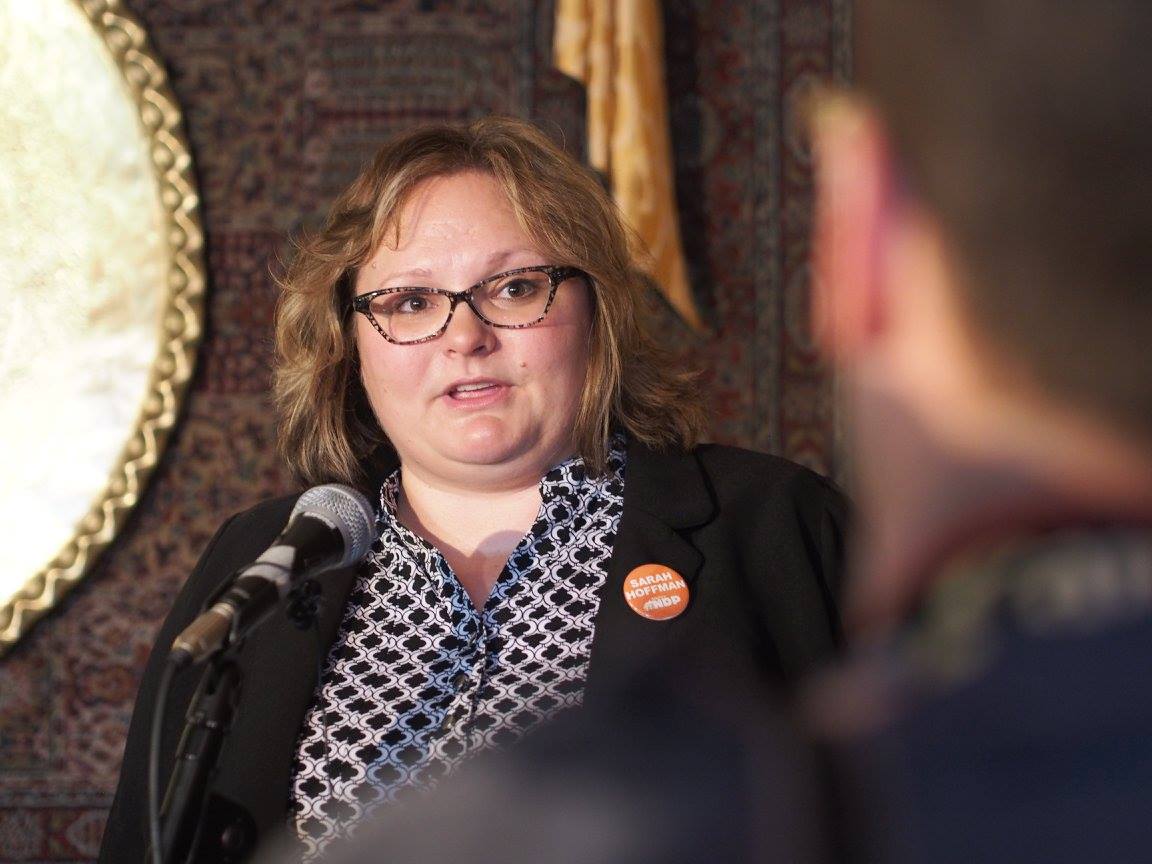Breaking
Alberta open to talks on electricity dispute, but says consumers to be protected

Sarah Hoffman, Deputy Premier of Alberta. (Facebook photo)
EDMONTON—Alberta’s deputy premier says the province is open to negotiating an out-of-court deal to resolve a potential $2-billion power dispute with private operators.
But Sarah Hoffman says the bottom line is that Alberta consumers shouldn’t be on the hook for enormous losses in power prices.
And she says any change in the government’s climate-change plan is off the table.
“We’ve been open to conversations for quite some time,” Hoffman said in an interview.
“(But) we’re not going to stand there and let companies that made $10 billion in profits pass on what projections say could be $2 billion or could be less (in losses.)
“We don’t think it (the original contractual arrangement) is legal.”
A number of private operators, including Enmax and Capital Power, are seeking to return money-losing electricity deals to the province that they say were made more unprofitable by Premier Rachel Notley’s new climate rules.
The province is going to court to try to nullify the give-back, saying that falling prices—and not changes to climate-change rules—have dropped the value of the contracts.
Notley’s government launched a lawsuit on July 25 over power purchase arrangements, better known as PPAs, involving Capital Power, Enmax, TransCanada and AltaGas.
The PPAs are the backbone of a deregulated electricity system created under the former Progressive Conservative government in 2000.
The idea was for power companies to buy electricity from generators at auction via the PPAs, then re-sell it to consumers for profit.
But the rules stipulate that no matter what happens to prices, generators always get a reasonable rate of return.
The power buyers were, in turn, promised that if the government made changes to make the deals unprofitable or made money-losing deals “more unprofitable,” they could effectively turn the contracts back over to consumers through a neutral third-party entity.
In recent months, companies that buy electricity off coal-fired plants have done just that.
They say the decision by Notley’s government in June 2015 to hike the cost of carbon fees on large emitters made money-losing contracts “more unprofitable,” triggering the give-back.
The government is arguing that low power prices, not government action, triggered the decline in PPA value.
It also argues the clause in PPAs allowing companies to return contracts when they become “more unprofitable” is null because it was never officially OK’d by former premier Ralph Klein’s government as a regulation.
Notley’s government has produced memos from 2000 suggesting the change was made at the last minute and in secret at the behest of Enron, an American-based energy giant that was a bidder for the PPAs and soon after collapsed in a massive accounting-fraud scandal.
Economist Trevor Tombe, with the University of Calgary, said it’s important to note that the third-party entities found almost all of the returned PPAs were still profitable in the months after the government hiked the fees on large emitters in June 2015, but then plunged into the red soon after as electricity prices plummeted.
Tombe said while fee changes are the official reason being used by companies to dump the PPAs, the real issue may be proposed changes a government-appointed climate panel is urging the province pass by 2018.
Under the new rules, everyone will begin paying at the same threshold. That will reduce production costs for gas-fired electricity companies but send costs for coal-fired electricity producers through the roof, said Tombe.
Under this change, he said, costs will have fallen for gas fired-electricity “which makes it very difficult for coal (fired-electricity) to pass their costs on to consumers.”





















